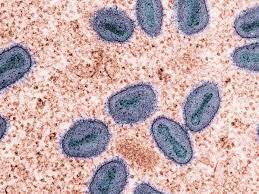The Democratic Republic of Congo (DRC) remains the African country most affected by the Mpox epidemic, which
continues to spread mainly in the province of South Kivu.
WHO has increased its vigilance, due to the continued increase in cases of Mpox in the Congolese province of South Kivu.
Also known as monkeypox, it has already infected 7,534 people in the DRC and caused 25 deaths, according to a report from the World Health Organization (WHO) covering the period from January 1 to October 20, 2024.
This is the heaviest toll since the appearance of this disease in Africa, where 9,320 cases and 34 deaths have been recorded, with Burundi ranking second with 1,287 cases.
Faced with this situation, analysis of tests carried out at the end of September indicates the presence of the new Ib variant, also detected in five other provinces: North Kivu, Kinshasa, Kasai, Tshopo and Tanganyika.
According to WHO, this spread is due to “close interpersonal contact between humans, including sexual contact and close contact within households and communities”. It emphasises that the epidemic affects both adults and children, reflecting broader community transmission via close contact.
“The epidemiological situation is complex and continues to evolve, generating new risks. There are multiple foci of different viral strains, or what we call clades. All clades of the virus are known to be transmitted from person to person,” said Dr. Michel Yao, WHO’s Mpox incident manager, during a regular UN press briefing in Geneva.
However, the UN agency found that two of these clades (Ib and IIb) were transmitted efficiently through sexual contact. “We now have evidence that there is also sustained human-to-human transmission of clade Ia in sexual networks in Kinshasa, following importation from endemic areas of the country. This may reflect sexual transmission in other provinces, the first signs of which we saw in a cluster of cases in mid-2023,” he added.
According to UN radio Okapi, more than 47,000 people have been vaccinated in the DRC, or 103 percent of the target, including in three of the six targeted provinces: Equateur, North Kivu, South Kivu, South Ubangi, Sankuru and Tshopo. In contrast, the WHO estimates that it has so far received only a third of the $87 million appeal for funds intended to combat Mpox.
ODL/ac/Sf/fss/as/APA


